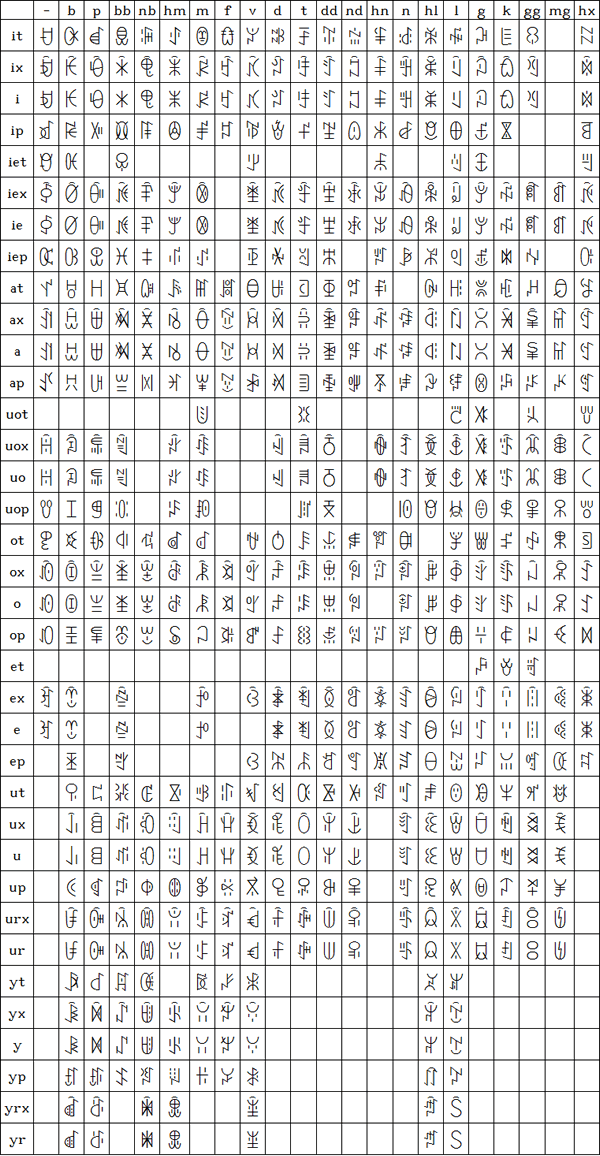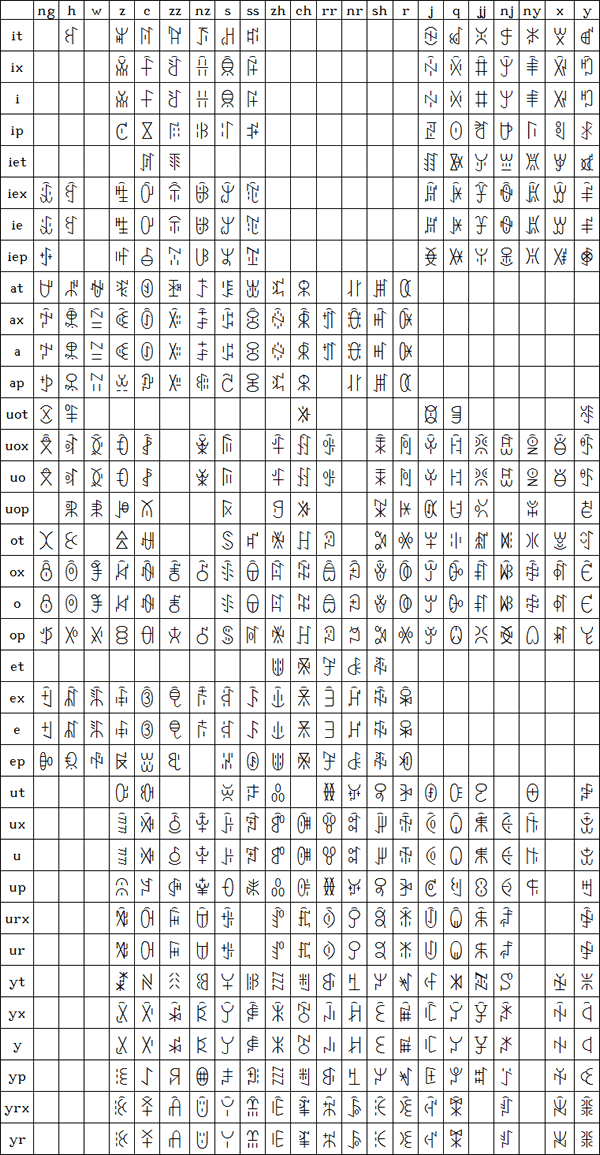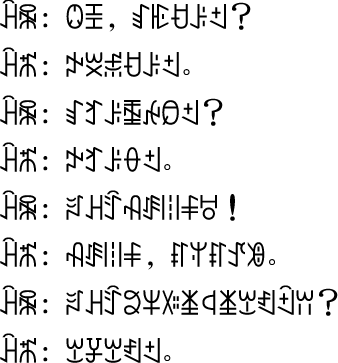The Yi script is a syllabary that is used to write Yi languages in southern China. According to Nuosu mythology, the script was invented during the Tang dynasty (618-907 AD) by Aki, a Nuosu hero. The earliest known example of Yi writing is an inscription on a bronze bell that dates from 1485. Howevr, there are tens of thousands of manuscripts in the Yi script, many of which are undated and may be older than this.
There original version of the Yi script is known as Classical Yi. It was used to from at least the 15th century until the 1970s to write the Nuosu, Nisu, Wusa Nasu and Mantsi languages. Originally it is thought to have consisted of 1,840 characters, however many regional variations of characters developed and around 90,000 different characters are found in manuscripts and inscriptions.
The Modern Yi script is a standardized version of the Classical Yi script that was developed by the Chinese government in 1974. It is based on the Liangshan dialect of Nuosu, and became the official script for that dialect in 1980. It consists of 756 basic characters, and 63 characters for words borrowed from Chinese. It is became known as Liangshan Standard Yi Script (涼山規範彝文 Liángshān guīfàn Yíwén).


Download this chart (Excel format)
Source: http://www.babelstone.co.uk/Yi/script.html

Muxhlie : Comrade, where do you come from?
Muxrryr : I am originally from Xide.
Muxhlie : Are you Yi or Han nationality?
Muxrryr : I am Yi.
Muxhlie : Your hometown is a peaceful place I suppose.
Muxrryr : Quiet and peaceful.
Muxhlie : Have you had a good harvest there this year?
Muxrryr : We had a bumper harvest.
Source: http://www.babelstone.co.uk/Yi/lesson_05.html

Source: http://unicode.org/udhr/assemblies/first_article_all.txt
Nbo ma mu viex jjux jjo, nzy ddu i qix jjy yyx mu jjo sat. Nbo wox ngop mge si nip bbop hxie nyi jjo, ddix ap bbop hmap zyt hnip mop mu jjo tat xi.
All human beings are born free and equal in dignity and rights. They are endowed with reason and conscience and should act towards one another in a spirit of brotherhood.
(Article 1 of the Universal Declaration of Human Rights)
Information about Nuosu | Details of the Yi script | Numbers
Information about the Yi script
https://en.wikipedia.org/wiki/Yi_script
https://www.babelstone.co.uk/Yi/script.html
https://www.endangeredalphabets.net/alphabets/yi/
Yi fonts
http://www.wazu.jp/gallery/Fonts_Yi.html
https://fonts.google.com/specimen/Nuosu+SIL
https://fonts.google.com/noto/specimen/Noto+Sans+Yi
Afaka, Bamum, Caroline Island Script, Celtiberian, Cherokee, Cypriot, Dunging (Iban), Eskayan, Hiragana, Iberian, Katakana, Kpelle, Loma, Mende (Kikakui), Mwangwego, Nüshu, Nwagụ Aneke, Vai, Yi, Yugtun
Page last modified: 05.06.23
[top]
You can support this site by Buying Me A Coffee, and if you like what you see on this page, you can use the buttons below to share it with people you know.

If you like this site and find it useful, you can support it by making a donation via PayPal or Patreon, or by contributing in other ways. Omniglot is how I make my living.
Note: all links on this site to Amazon.com, Amazon.co.uk
and Amazon.fr
are affiliate links. This means I earn a commission if you click on any of them and buy something. So by clicking on these links you can help to support this site.
[top]